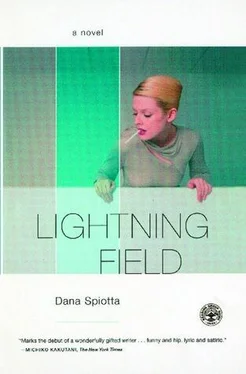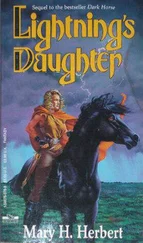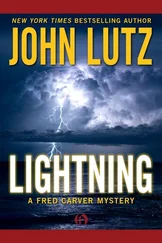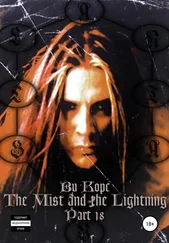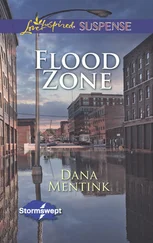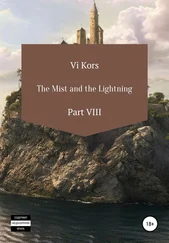At seven and ten they spent most of their summertimes apart and with different parents. Michael on location with their father, Mina in L.A. with their mother. But during the schoolyear they were always together. Mina and Michael became a two-person investigative cadre. They experimented, they were on a reconnaissance mission between themselves and the world. She mostly remembered them always lighting things in the fireplace. They would load the kindling and the newspapers and then the Duraflame log and then the real logs in the slate-manteled Beverly Hills fireplace. They would beg to be the one who lit the paper in three or four spaced-out places. The flare-up as it ignited, and then the flare-down as it worked on the wood and the “durable” flame. She liked the initial burning flash, and they were bored with the quietly crackling logs, the stoic heat-giving red glow. If the paper and the twigs burned so brightly, why not do the whole fire with paper and twigs? She had a fantasy of throwing endless paper and twigs as the flames flared and hungrily consumed. The drama of it.
“It doesn’t last, doesn’t give off heat, it makes too much ash,” their father would say. But Michael and Mina would sit as close to the fire as possible, until their faces were red from it, until they couldn’t stand it. And when their father wasn’t looking, they’d chuck in newspapers, rolled and tied in a knot, so the flames could unknot it, flaring and then waning and sending little flaming pieces up the flue. They would float upward and glow as if in slow motion. And it would look for a moment how they imagined real fires would look, burning houses and cities, when the sky would be filled with pretty glowing bits of slow-rising ash.
Michael took to drawing, on construction paper, skylines and houses. First cityscapes in silhouette, a skyline seen only in movies and nightlife commercials. Mina would cut the edges out, leaving the varied points, the profile of a grand city with six Empire State Buildings, “skyscrapers,” jagged, manic-edgedbuildings built with such upward optimism and hubris they scraped the sky. They’d put it there behind the Duraflame, prop it up before the fire was lit. Then when it started to burn, they would narrate it. They’d become broadcasters. Even break down on the air—“My God, the flames are consuming the city. I’ve never seen anything like this, my God”—and then they would bawl and scream and cry, finally mimicking the imagined screams of a burning city, even the rats in the boiling sewers.
Their father told them the great Chicago fire started when a cow knocked over a lamp. Mina wondered later why a cow was in the city. And how a fallen lamp could start a fire. Michael figured the smallest mistake could burn the whole world down. One careless moment. They discussed fire drills. Escape plans. Window jumps that could be survived. Mina said, “Well, our house won’t burn because it’s brick,” but he reminded her that whole steel-girdered buildings burn, and brick was even worse. All the fire got locked inside with the people.
“What’s a pizza oven made out of, like the one at Mario’s?” Mina knew what he was getting at. She nodded sagely.
“Our house is a brick oven.”
Then there was the garage. The metal-plated heat toy in the garage. It melted rubber pellets into creatures. It was called Creature Features. Then they discovered Shrinky Dinks, which were plastic, maybe Plexiglas, ornaments that you colored with a special marker and then put in the toaster oven until they shrank and their colors were sealed in, emitting an odd, burning-plastic smell that her brother and she fell in love with. They watched them shrink through the oven window. The melting preset pellets soon inspired their own heat “experiments. a” They both seemed to realize simultaneously that anything plastic could melt, and that the fun of it, the mystery contained within the plastic, was watching how it would melt. Objects lost their form and revealed something elemental and basic. The truth of things was revealed in their destruction.
Michael’s army men succumbed first. They arranged two in static combat on a piece of tinfoil, locked them in the toaster oven, and narrated the results.
“Nuclear combat,” Mina said.
“Napalm is covering the hillside,” her brother said. The army men would darken, then all at once seem animated and start to buckle and move until they did begin to melt, their guns and arms indistinguishable, drippy appendages, their legs molten with the enemies’ legs. They’d stop it midmelt and let them dry, melted together — half men, half mutant blobs.
“They’re discovered like this, after the bomb.”
“Like Pompeii,” she said. Their little Joe faces melted so their entire heads looked like mouths screaming. Soon they had whole postapocalyptic armies, mass graves of melted, screaming men. The kitchen smelled foreign and toxic. Soon anything plastic found its way to the oven, had to be melted. Transformed by heat, watched through the window of the toaster oven. Later it occurred to Mina they were amazingly unsupervised as children. Didn’t anyone notice they were melting the entire world, from poker chips to Barbie heads to swizzle sticks? Couldn’t people smell it?
“You exaggerate,” she had said, years later, to Michael in one of his lucid moments. “One time, one afternoon, we melted an army guy in the toaster. I think the rest is just your pyro fantasies.”
But no, she was lying. She remembered. There was fire,and there was heat. Later there were the days of secret cigarettes on the roof, the red coals the only thing visible as they sat. She wanted to say, You tried to teach me how to do smoke rings, but it was like whistling with two fingers — one of those things you seemed able to do from instinct that I could never learn. But she didn’t say that.
The hospital. When she finally forced herself to visit Michael in the hospital, it was her first and last time. He chainsmoked, making an ugly sucking sound until the gesture seemed odd and foreign and creepy. She tried to ignore it, and then she saw under his robe maybe a hundred crescent-shaped, white puckered burns. Circles with the same diameters as cigarettes. Over and over on his skin. Over and over, not once, not a fire and heat experiment, not curiosity or a flirtation with danger — but a mechanical difference. Over and over like the strange sucking sound he made when he inhaled. Mina didn’t want to think about that, didn’t want to think of him like that. Wouldn’t.
But it wasn’t really the hospital. The estrangement started long before. The hospital was just the final articulation of it. The first time she noticed how different he was, how he had really changed, was during Thanksgiving vacation his freshman year at college.
Michael had had a rough start at school. He hadn’t made any friends. He was on again and off again with Lorene. He hadn’t called Mina much at all. Mina missed him completely; his visit was about the only thing she looked forward to that fall. But the strange thing was the longing didn’t stop after his return, it was still there as a kind of quiet sadness that couldn’t be comforted, sadness about how distant he seemed, sadness about not being ten. He was glamorously lean muscled andsuddenly tall. He wore a trench coat and a torn black T-shirt. He carried a dog-eared book, some Latinate-titled philosophy thing, which he fingered at times. He pretended that nothing had changed, jumping her and wrestling, giving her looks at dinner, watching midnight TV and giggling. But he fell into longer, more obscure monologues. He was almost patronizing.
“What do you want to do tonight?” she asked him.
“One — light air. Two — light breeze,” he said.
“What?”
“Three — gentle breeze. Four — moderate breeze. Five— fresh breeze. Six—”
Читать дальше
